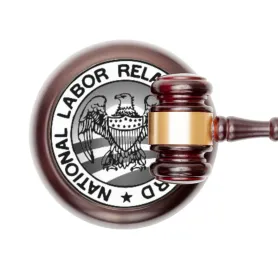On March 22, 2023, National Labor Relations Board (NLRB) General Counsel (GC) Jennifer Abruzzo issued a memorandum clarifying the Board’s February 2023 decision that nondisparagement and confidentiality provisions in severance agreements are unlawful. In the memorandum, the GC states that she interprets the decision to apply to agreements already signed and that claims would not be time-barred as long as an employer maintains or enforces such terms.
In McLaren Macomb, the Board found that conditioning severance agreements on the acceptance of nondisparagement and confidentiality terms and the mere proffer of such terms are unlawful because they restrict workers’ rights under the National Labor Relations Act (NLRA). Open questions following the Board’s decision included what exactly it means for the use of separation agreements and whether the decision will be applied retroactively to agreements that already contain such terms.
Abruzzo’s new memorandum offered further guidance on her interpretation of the impact of the decision that employers may want to consider in drafting and enforcing separation agreements. Here are some key points of the memorandum.
Retroactive Application
The memorandum clarified that the GC’s interpretation is that the decision has “retroactive application.” Further, the memorandum stated that the GC believes that despite a potential six-month statute of limitations period, “maintaining and/or enforcing a previously-entered severance agreement with unlawful provisions” will be considered to be a continual violation such that an unfair labor practice (ULP) charge would not be time-barred.
The memorandum further explained that the decision applies to former employees and does “not depend on the existence of an employment relationship between the employee and the employer.” Notably, the GC stated that while it will not cure violations of an unlawful proffer, employers “should consider remedying” violations by contacting employees subject to severance agreements with “overly broad provisions” to tell them that the provisions are “null and void” and that they will not be enforced.
Are All Severance Agreements Unlawful?
According to the memorandum, severance agreements that waive the signing employee’s right to pursue employment claims and “only as to claims arising as of the date of the agreement” are still lawful. Such lawful severance agreements may be proffered, maintained, and enforced” so long as they do not have “overly broad provisions” that effect the fights of employees to engage with one another in protected, concerted activities.
However, the memorandum noted that the Board held that employers have “no legitimate interest” in maintaining unlawful provisions in severance agreements and that in finding whether there has been an NLRA violation, whether or not an employee actually signed a severance agreement is “irrelevant” as “the proffer itself inherently coerces employees by conditioning severance benefits on the waiver of statutory rights.”
Confidentially and Nondisparagement Clauses May Still be Lawful
The memorandum states that confidentiality clauses that are “narrowly-tailored to restrict dissemination of proprietary or trade secrets information” for periods of time and with “legitimate business justifications” may still be considered lawful. Nondisparagement clauses may similarly be found lawful only where the clause is “narrowly-tailored” and “justified” to prohibit statements that would rise to the level of “defamation” as being “maliciously untrue” and made with “knowledge of their falsity or with reckless disregard for their truth or falsity.”
Other ‘Problematic’ Terms
Beyond confidentiality and nondisparagement clauses, the GC called attention to a number of other common contract clauses that she believes are “problematic” and may be unlawful in severance agreements, including: “non-compete clauses,” “no solicitation clauses,” “no poaching clauses,” broad liability releases,” and “covenants not to sue” that go beyond the employer or employment claims. Additionally, the GC noted that agreements to require cooperation in future investigations or proceedings involving an employer (e.g., being asked to testify against a coworker who assisted with the filing of a ULP charge) may restrict employees’ NLRA rights.
Key Takeaways
The memorandum highlights the GC’s broad interpretation of the McLaren Macomb decision and its retroactive application to severance agreements already signed. It further demonstrates the GC’s aggressive pro-employee stance, warning employers to inform employees that confidentiality and nondisparagement clauses in severance agreements are no longer in effect and calling into question a host of other common contract clauses that she believes may also violate the NLRA. Employers may want to review their severance agreements and the breadth of terms with them in light of the GC’s guidance.





 />i
/>i

